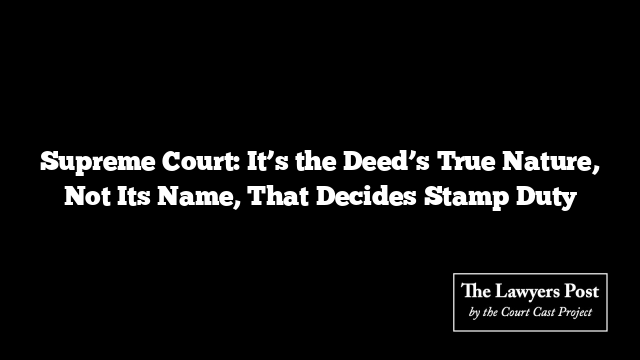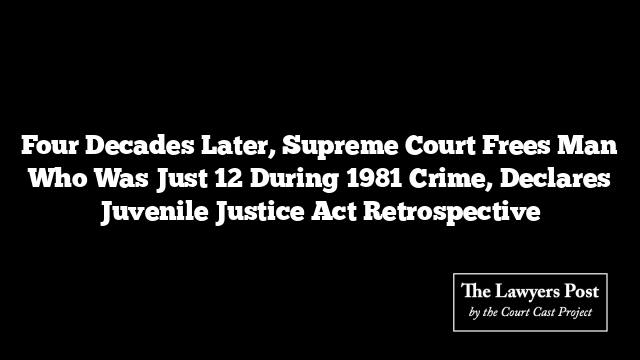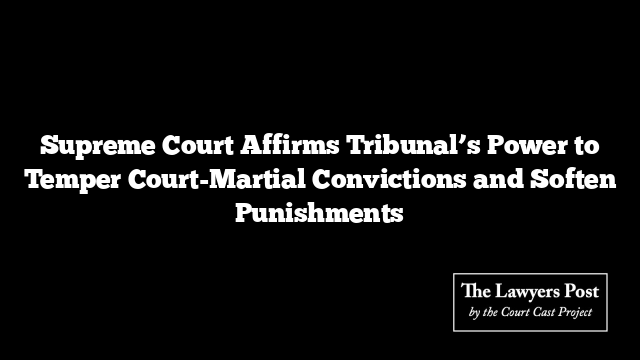The Supreme Court has made it clear that what determines stamp duty isn’t the fancy title on a document, but the real substance of what it does.
A company had tried to pass off a mortgage deed as a “Security Bond cum Mortgage Deed” to attract a lighter stamp duty, but the Court saw through the disguise. The bench of Justices Ahsanuddin Amanullah and Prashant Kumar Mishra dismissed the company’s appeal, siding with the revenue department’s view that the instrument was, in essence, a mortgage deed and must bear the higher duty.
The dispute began when the company executed the deed in favour of the Meerut Development Authority (MDA), mortgaging certain properties to secure obligations related to colony development—ranging from payment of development charges to providing public amenities. In the event of a default, the MDA was entitled to sell the mortgaged properties to recover over ₹1 crore. The company paid only ₹100 in stamp duty under Article 57 of the Indian Stamp Act, treating the document as a security bond.
Authorities, however, demanded ₹4.61 lakh, arguing that the transaction’s essence was that of a mortgage, not a security bond. Both the revenue officials and the Allahabad High Court agreed, prompting the company to approach the Supreme Court.
Upholding the lower authorities, the apex court emphasized that the substance and effect of the document—not its title—govern its true character for stamp duty purposes. “The nomenclature ‘Security Bond cum Mortgage Deed’ is inconsequential,” the judgment noted, stressing that the document squarely fit the definition of a mortgage deed.
The Court further explained that Article 57 of the Stamp Act applies only when a third party acts as surety. In this case, the company itself had mortgaged its own assets; hence, it was not a surety but the principal debtor. That distinction, the judges held, excluded the document from Article 57 and brought it under Article 40, which covers mortgage deeds.
Finding no fault in the revenue’s demand, the Supreme Court dismissed the appeal, confirming that the true legal character of a document—not the words used to dress it up—determines how much stamp duty it must bear.





